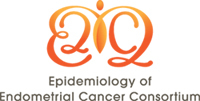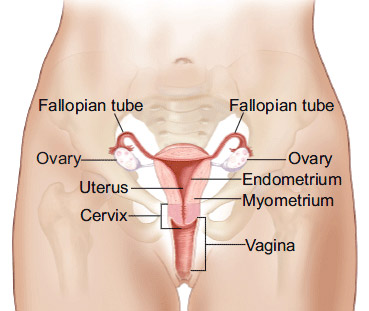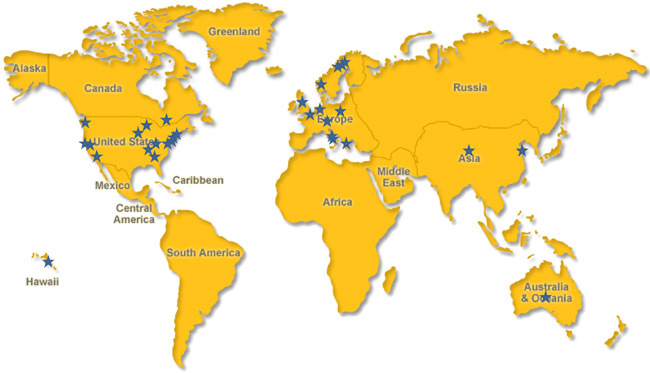
The Epidemiology of Endometrial Cancer Consortium (E2C2) is an NCI-supported consortium dedicated to studying the etiology of this common cancer through collaboration among investigators. The overall objective of E2C2 is to build on resources from existing studies by combining data across studies in order to advance our understanding of the etiology of this disease.
On this page...
About Endometrial Cancer
The endometrium is the lining of the uterus, the organ where the fetus grows before birth. The endometrium is very responsive to hormonal changes throughout the menstrual cycle. In menstruating women, the endometrial lining is sloughed off every month and then grows back to support an embryo if fertilization takes place.
In 2019, it is estimated that endometrial cancer will be diagnosed in about 61,880 women in the U.S., making this the fourth most common cancer in women in the U.S. Survival is high, with about 81% of women alive 5 years after a diagnosis of endometrial cancer. However, certain subtypes of endometrial cancer have a less favorable prognosis, and in 2019, 12,160 deaths from endometrial cancer are expected in the U.S. Recently, it has been reported that endometrial cancer incidence is rising in the U.S. and worldwide.

Figure: Diagram of Uterus - © 2009 Terese Winslow, U.S. Govt. has certain rights.
Most women with endometrial cancer are diagnosed in their 60s or early 70s. A major risk factor for endometrial cancer is overweight or obesity. Exposure to estrogen replacement therapy without progestin increases risk, but today this is not prescribed for women with a uterus. Reproductive factors also influence risk: women with children, and women with larger numbers of children are at lower risk, as are women who have used oral contraceptives. View more information on risk factors.
About E2C2
E2C2 welcomes researchers interested in better understanding the etiology of endometrial cancer. Learn more about E2C2 membership.
As shown on the map below, more than 37 studies have joined E2C2 since its inception in 2006.

Study Design: 22 case-control and 15 cohort studies
Geography: 1 Asia, 25 North America, 10 Europe, 1 Australia
Contacts
Principal Investigator
-
Immaculata De Vivo, PhD, MPH

Department of Epidemiology, Harvard T.H. Chan School of Public Health
Co-PI
-
Mengmeng Du, ScD

Memorial Sloan Kettering Cancer Center
E2C2 Administrator
-
Jeffin Naduparambil, MPH

Memorial Sloan Kettering Cancer Center
NCI Contacts
-
Leah Mechanic, PhD, MPH
Division of Cancer Control and Population Sciences Representative -
Megan Clarke, PhD, MHS
Memorial Sloan Kettering Cancer Division of Cancer Epidemiology and Genetics Representative